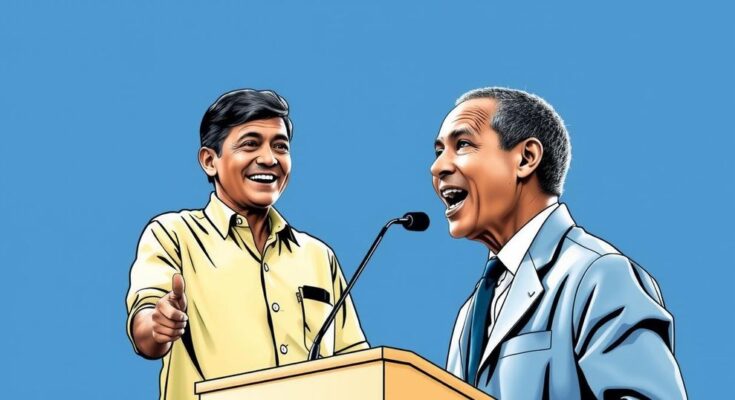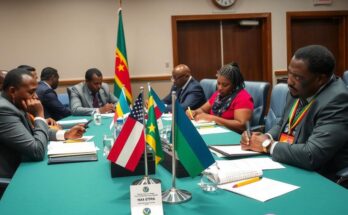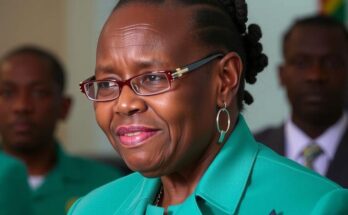On November 24, Yamandú Orsi won Uruguay’s presidential election, reversing five years of conservative leadership. Orsi, of the left-wing Frente Amplio, received 1,123,420 votes against Álvaro Delgado’s 1,042,001. Analysts predict moderate economic changes while both candidates focused on combating drug-related crime and fostering growth. The victory was celebrated in Montevideo, indicating strong support for the left.
On November 24, Uruguay’s electoral results revealed that left-wing candidate Yamandú Orsi emerged victorious in the presidential election, marking a significant shift away from five years of conservative governance. Orsi, representing the Frente Amplio (Broad Front), received 1,123,420 votes while his opponent, Álvaro Delgado of the National Party, garnered 1,042,001 votes. This election was characterized by a close competition and Orsi’s promises of promoting national dialogue to address pressing issues. Despite the change in leadership, analysts do not expect drastic alterations in Uruguay’s economic strategy, as Orsi had previously indicated a moderate approach. Both candidates focused on crucial issues such as crime reduction and economic recovery following the challenges posed by the Covid-19 pandemic and a severe drought. The victory was celebrated, particularly in Montevideo, reflecting strong support for the Frente Amplio coalition, which aims to return to power after being ousted in 2020 due to rising crime and economic concerns. With compulsory voting in place, this election signifies Uruguay’s resilience as a stable democracy, with a high per-capita income and low poverty rates, and continues a historical trend of significant social reforms initiated during previous leftist administrations.
The recent presidential election in Uruguay signifies a critical political transition for the nation, moving from a period of center-right governance back to a leftist administration. The Frente Amplio coalition, which previously held power for fifteen years, was displaced in 2020 amidst concerns over crime and economic management. The election of Yamandú Orsi may reflect voters’ desire to address these socio-economic challenges through renewed dialogues and initiatives aimed at crime control and economic growth. Furthermore, the role of José Mujica, a beloved former president, illustrates the ongoing influence of past left-wing leadership on current political dynamics. Voting is compulsory in Uruguay, underscoring its commitment to democratic participation and stability, which are hallmarks of the country’s political landscape.
In conclusion, Yamandú Orsi’s election as President of Uruguay represents a corrective shift in political power towards the left after a five-year conservative rule. His commitment to fostering national dialogue and addressing socio-economic issues resonates with the electorate’s desire for effective solutions. While the transition in leadership may not produce radical changes in policy, it symbolizes hope for improved governance. The election also reflects Uruguay’s dedication to maintaining democratic processes, as evidenced by compulsory voting and active civic engagement.
Original Source: www.lemonde.fr




